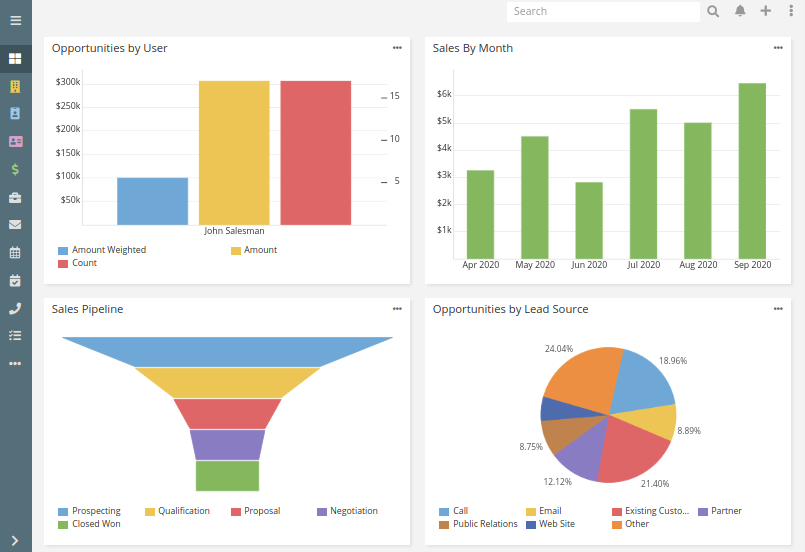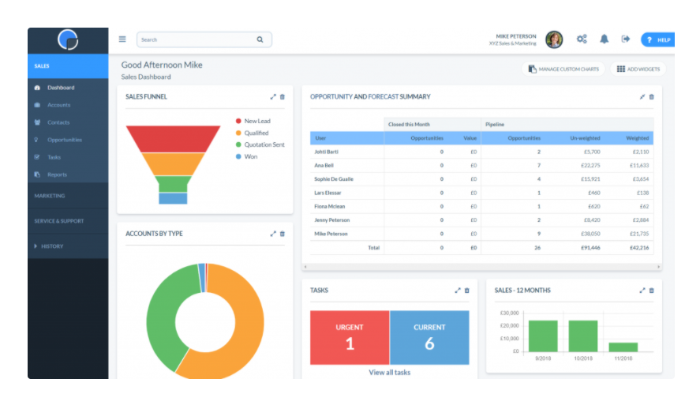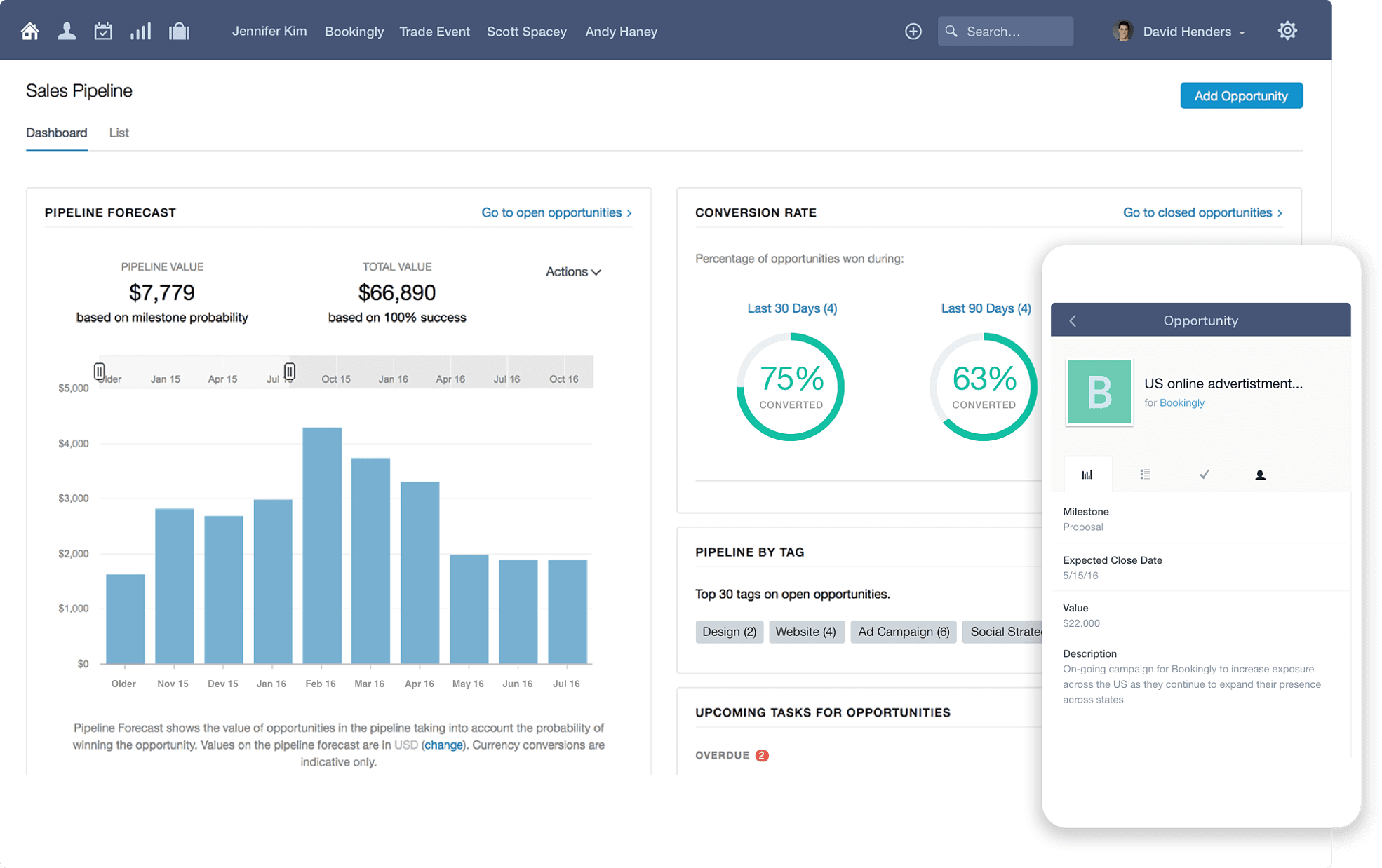Crm program free – In the realm of customer relationship management, free CRM programs have emerged as a game-changer for businesses of all sizes. These tools empower organizations to streamline their sales, marketing, and customer service operations, all while maximizing their budgets. In this comprehensive guide, we delve into the world of free CRM programs, exploring their benefits, limitations, and how to choose the perfect one for your business.
Free CRM programs offer a plethora of advantages, from cost savings to enhanced customer engagement. They provide businesses with the ability to manage their customer data, track sales pipelines, automate marketing campaigns, and provide exceptional customer support, all without breaking the bank.
Overview of CRM Programs
A customer relationship management (CRM) program is a software tool that helps businesses manage their interactions with customers. CRM programs track customer data, such as contact information, purchase history, and communication preferences. This data can be used to improve customer service, marketing, and sales.
Key Benefits of Implementing a CRM Program
There are many benefits to implementing a CRM program, including:
- Improved customer service: CRM programs can help businesses provide better customer service by giving them a complete view of each customer’s history.
- Increased sales: CRM programs can help businesses increase sales by providing them with insights into customer behavior.
- Improved marketing: CRM programs can help businesses improve their marketing campaigns by providing them with information about customer preferences.
- Reduced costs: CRM programs can help businesses reduce costs by automating tasks and improving efficiency.
Types of CRM Programs

Customer relationship management (CRM) programs are designed to help businesses manage and track their interactions with customers. There are many different types of CRM programs available, each with its own unique features and functionalities.
The most common types of CRM programs include:
- Operational CRMprograms help businesses automate their sales, marketing, and customer service processes. These programs can help businesses track customer interactions, manage customer data, and generate reports.
- Analytical CRMprograms help businesses analyze their customer data to identify trends and patterns. These programs can help businesses understand their customers’ needs and preferences, and develop targeted marketing campaigns.
- Collaborative CRMprograms help businesses share customer data and collaborate on customer-related activities. These programs can help businesses improve their customer service and sales processes.
Benefits of Free CRM Programs

Free CRM programs offer several advantages to businesses, especially startups and small companies with limited budgets. These programs provide a cost-effective way to manage customer relationships, streamline sales processes, and improve customer service.Key features of free CRM programs typically include contact management, lead tracking, opportunity management, and basic reporting capabilities.
While these programs may not offer the advanced features and customization options found in paid CRM solutions, they can still be effective for managing small to medium-sized businesses.
Limitations of Free CRM Programs
However, it’s important to be aware of the limitations of free CRM programs. These programs often have limited storage capacity, may not integrate with other business systems, and may not provide the same level of customer support as paid CRM solutions.
Additionally, some free CRM programs may include advertising or have restrictions on the number of users or features available.
Limitations of Free CRM Programs
While free CRM programs offer numerous benefits, it’s crucial to be aware of their potential drawbacks before making a decision. Understanding the limitations can help businesses choose the most suitable CRM solution for their specific needs.
One significant limitation is the limited functionality and features offered by free CRM programs. These programs may not provide all the essential features required by businesses, such as advanced reporting, customization options, and integrations with other software. This can hinder businesses from effectively managing their customer relationships and optimizing their sales and marketing processes.
Factors to Consider When Choosing a Free CRM Program
When selecting a free CRM program, businesses should carefully consider the following factors:
- Number of users:Determine the number of users who will be accessing the CRM program. Some free CRM programs have limitations on the number of users, which may not be suitable for businesses with multiple users.
- Data storage capacity:Consider the amount of data that will be stored in the CRM program. Free CRM programs often have limited data storage capacity, which may not be sufficient for businesses with large volumes of customer data.
- Integration options:Evaluate the integration options available with the free CRM program. Businesses may require integrations with other software, such as email marketing platforms or accounting systems. Ensure that the free CRM program supports the necessary integrations.
- Support and updates:Consider the level of support and updates provided by the vendor of the free CRM program. Some vendors may offer limited support or infrequent updates, which can impact the reliability and effectiveness of the program.
Choosing the Right Free CRM Program: Crm Program Free

Choosing the right free CRM program is essential for small businesses and startups. It can help you manage your customer relationships, track sales, and improve your overall productivity. However, with so many different CRM programs available, it can be difficult to know which one is right for you.
Here is a step-by-step guide on how to choose the right free CRM program:
Step 1: Identify Your Needs
The first step is to identify your business needs. What are you looking for in a CRM program? Do you need to track sales, manage customer relationships, or both? Once you know what you need, you can start to narrow down your options.
Step 2: Research Different CRM Programs
Once you know your needs, you can start to research different CRM programs. There are a number of different resources available to help you with this, such as online reviews, software comparison websites, and industry blogs.
Step 3: Evaluate Different CRM Programs, Crm program free
Once you have a few CRM programs in mind, you need to evaluate them to see which one is right for you. Here are some of the key factors to consider:
- Features: Does the CRM program have the features you need?
- Ease of use: Is the CRM program easy to use and navigate?
- Customer support: Does the CRM program offer good customer support?
- Cost: Is the CRM program free or affordable?
Step 4: Choose the Right CRM Program
Once you have evaluated the different CRM programs, you can choose the one that is right for you. Be sure to consider your needs, budget, and ease of use when making your decision.
Implementing a Free CRM Program
Implementing a free CRM program can streamline your business operations and enhance customer relationships. Follow these steps to get started:
1. Define your business needs
Determine the specific areas where a CRM system can benefit your business, such as sales, marketing, or customer service.
2. Research and select a free CRM
Explore different free CRM options and choose one that aligns with your business requirements and industry. Consider features, ease of use, and integration capabilities.
3. Set up the CRM
Configure the CRM system according to your business needs, including customizing fields, creating pipelines, and integrating with other tools.
4. Train your team
Provide training to your team on how to use the CRM effectively, ensuring everyone understands its functionality and benefits.
5. Import data
Transfer existing customer data from spreadsheets or other systems into the CRM to create a comprehensive customer database.
6. Monitor and evaluate
Regularly track CRM usage and customer interactions to identify areas for improvement and ensure the system is meeting your business objectives.
Best Practices for Using a Free CRM Program
Free CRM programs can be a great way to manage your customer relationships without breaking the bank. However, it’s important to use these programs effectively to get the most out of them.
Here are a few tips and tricks for getting the most out of a free CRM program:
- Start small.Don’t try to do too much with your CRM program all at once. Start by tracking a few key metrics, such as sales leads and customer interactions.
- Keep your data clean.Regularly review your CRM data and remove any duplicate or inaccurate records. This will help you keep your data organized and easy to use.
- Use the reporting features.Most free CRM programs offer reporting features that can help you track your progress and identify areas for improvement.
- Get help from the community.There are many online communities where you can get help with using your CRM program. These communities can be a great resource for troubleshooting and learning new tips and tricks.
Here are a few common pitfalls to avoid when using a free CRM program:
- Don’t over-customize.It’s tempting to customize your CRM program to meet your specific needs. However, too much customization can make your program difficult to use and maintain.
- Don’t neglect your data.Your CRM data is one of your most valuable assets. Make sure to regularly back up your data and keep it secure.
- Don’t expect too much.Free CRM programs are not as powerful as paid CRM programs. However, they can still be a valuable tool for managing your customer relationships.
Examples of Free CRM Programs
Free CRM programs offer a range of features to help businesses manage their customer relationships. These programs can be used to track customer interactions, manage sales pipelines, and provide customer support. While free CRM programs may not offer the same level of functionality as paid programs, they can be a good option for small businesses or startups that are looking for an affordable way to manage their customer relationships.
Here is a table comparing the features and pricing of different free CRM programs:
| Program | Features | Pricing |
|---|---|---|
| HubSpot CRM | Contact management, email marketing, sales pipeline management, customer support | Free |
| Zoho CRM | Contact management, sales pipeline management, customer support, project management | Free for up to 3 users |
| Freshsales CRM | Contact management, sales pipeline management, customer support, email marketing | Free for up to 10 users |
| Insightly CRM | Contact management, sales pipeline management, project management, customer support | Free for up to 2 users |
| Bitrix24 CRM | Contact management, sales pipeline management, customer support, project management, email marketing | Free for up to 12 users |
Here are detailed reviews of popular free CRM programs:
HubSpot CRM
HubSpot CRM is a popular free CRM program that offers a wide range of features, including contact management, email marketing, sales pipeline management, and customer support. HubSpot CRM is easy to use and integrates with a variety of other business applications.
It is a good option for small businesses that are looking for a comprehensive CRM program.
Zoho CRM
Zoho CRM is another popular free CRM program that offers a wide range of features, including contact management, sales pipeline management, customer support, and project management. Zoho CRM is more complex than HubSpot CRM, but it offers more features and customization options.
It is a good option for businesses that need a powerful CRM program.
Freshsales CRM
Freshsales CRM is a free CRM program that is designed for sales teams. Freshsales CRM offers a variety of features, including contact management, sales pipeline management, customer support, and email marketing. Freshsales CRM is easy to use and integrates with a variety of other business applications.
It is a good option for small businesses that are looking for a CRM program that is specifically designed for sales teams.
Ultimate Conclusion
Ultimately, choosing the right free CRM program is crucial for businesses looking to optimize their customer relationships. By carefully considering your business needs, evaluating different options, and implementing best practices, you can harness the power of these tools to drive growth, improve customer satisfaction, and achieve long-term success.
Popular Questions
What are the key benefits of using a free CRM program?
Free CRM programs offer numerous benefits, including cost savings, enhanced customer engagement, improved sales pipeline management, automated marketing campaigns, and exceptional customer support.
What are the limitations of free CRM programs?
Free CRM programs may have limited features, storage capacity, and customization options compared to paid CRM solutions. It’s important to carefully evaluate your business needs and choose a program that meets your requirements.
How do I choose the right free CRM program for my business?
To choose the right free CRM program, consider your business size, industry, and specific needs. Evaluate different options, read reviews, and consider factors such as features, ease of use, and customer support.
